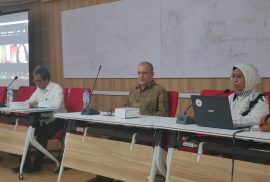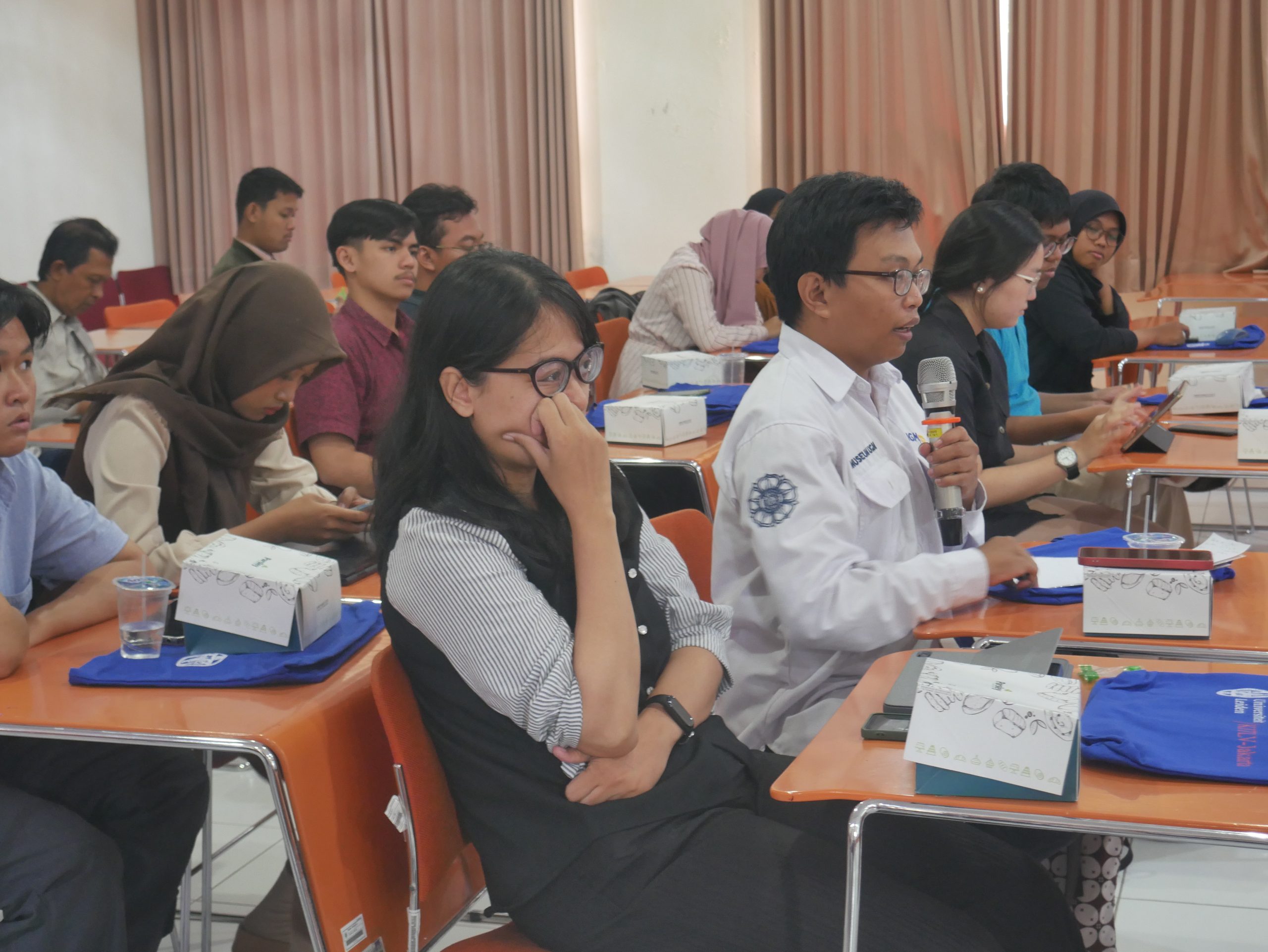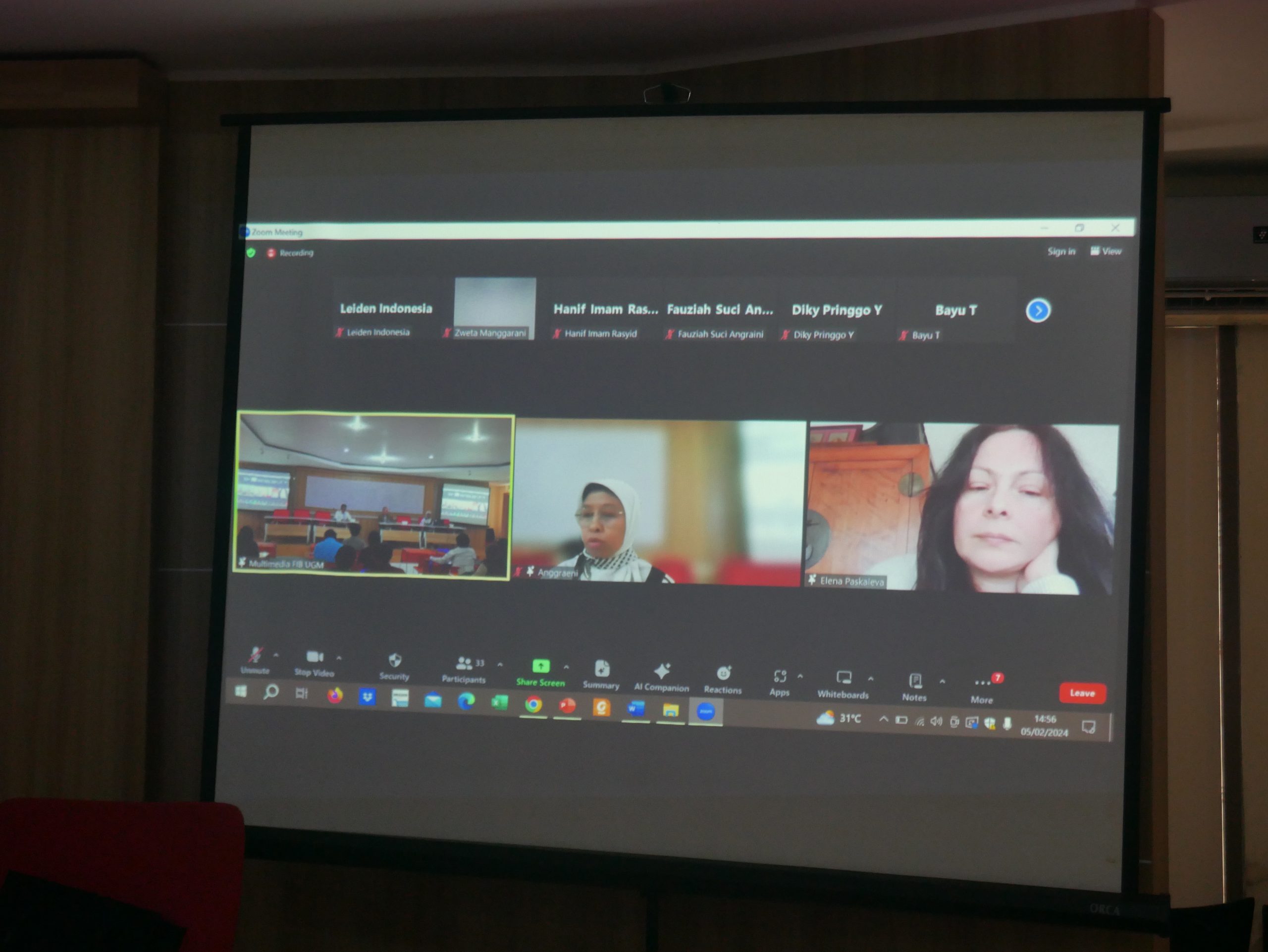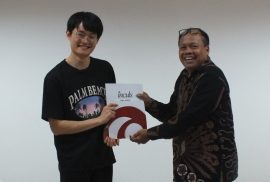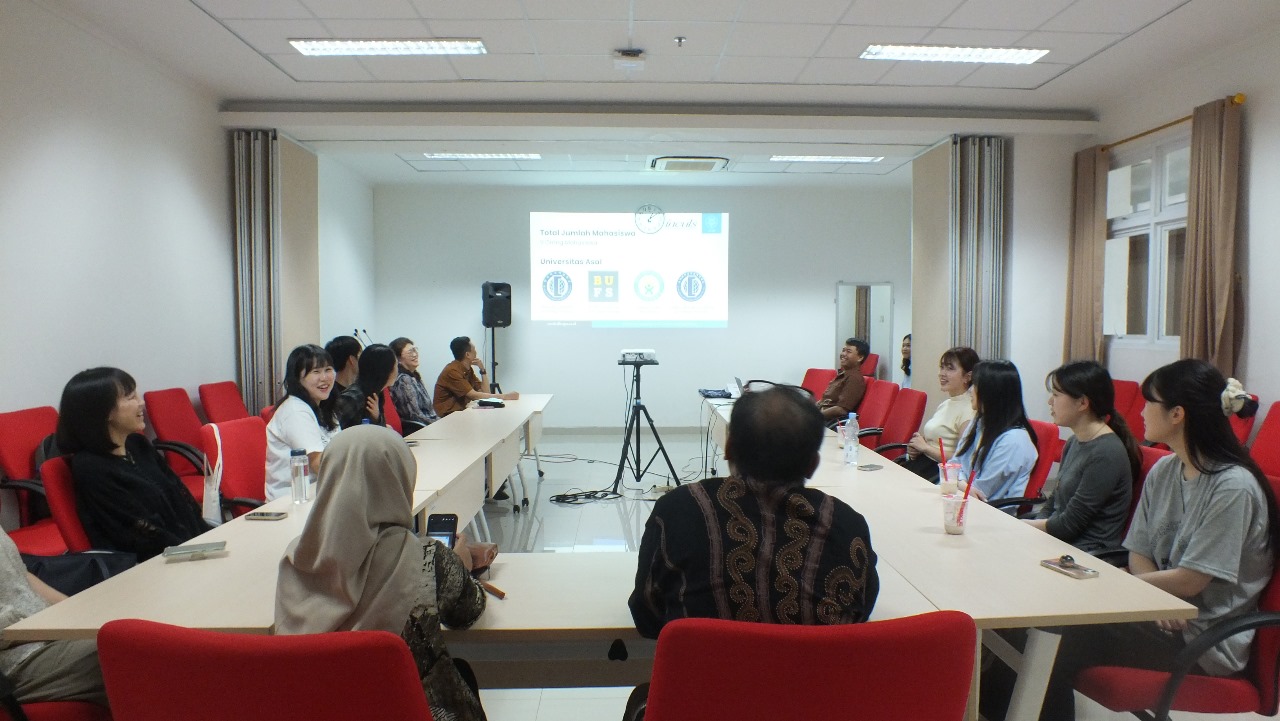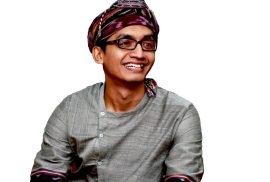SDG 17: Partnerships for the goals | SDGs 17: Global partnership | SDG 16: Peace, justice and strong institution | SDGs 16: Conflict resolution | SDG 11: Sustainable cities and communities | SDGs 11: Community
On Tuesday, February 13th 2024 at 1 until 3 pm, the UGM Japanese Language and Culture Study Program held a public lecture on the topic “Will Japan become a ‘normal country’?: Changes in the Defense Debate Before and After the Outbreak of The Ukraine War ” which was delivered by researchers and teaching staff at the Graduate School of International Cooperation Studies from Kobe University, (Ass. Prof.) Masato Nakahara. This Public Lecture was the opening for the 2023/2024 even semester lecture activities which were attended by lecturers and students of the Japanese Language and Culture Study Program, as well as students from outside the study program who were interested in Japanese issues.
In the first part, Nakahara-sensei explained the history of the formation of the Jieitai (Japanese Self-Defense Forces) after Japan’s defeat in World War II and changed in the position of the Jieitai during the Allied occupation as regulated in the Showa Constitution which was in effect to this day. The restrictions on Jieitai activities regulated in the Showa Constitution meant that Japan’s military activities were very limited, including when there was a war outside Japan, such as Russia’s war with Ukraine, which is still ongoing today. Japan’s position in relation to security and world peace is a dilemma because sending war troops abroad violates the mandate of the Shouwa Constitution, while on the other hand the international world wants Japan to play an active role in sending war troops. Especially in the current era where changes in the global political constellation after the Cold War are increasingly dynamic and real, Japan, which is required to always prioritize peace as mandated by the Shouwa Constitution (Heiwa Kenpou), needs to look for new interpretations so that it can become a ‘normal’ country, namely a country that on the one hand can maintain sovereignty, and on the other hand can play a role in world peace. After the presentation session by Nakahara-sensei, the public lecture continued with a discussion and question and answer session which was very dynamic and filled with various questions from the public lecture participants regarding Japan’s attitude and position in relation to international conflicts, geopolitical changes in East Asia and Indonesia.
Understanding the position of Japan in the context of global change is considered important for the study program’s academic community because apart from being a means of updating information related to current issues regarding the country of Japan, it is also a means of learning and inspiration for research themes concerning Japanese issues. More than that, through forums like this, cooperation between study programs and foreign institutions can be further enhanced and can become a means for study programs to facilitate their academic community to be able to move more globally, in accordance with one of the Millennium Development Goals (MDGs), namely developing global partnerships for development.

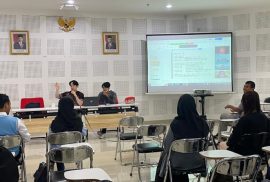
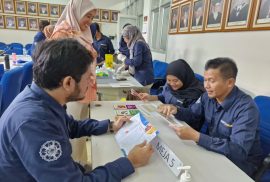
 The second day’s event was held the following day, it was Wednesday, 7th of February 2024 in Courtroom 1 of Poerbatjaraka Building, 1st Floor, Faculty of Cultural Sciences, Gadjah Mada University at 8 am until 12.15 pm. Because on the first day the participants were presented with basic material regarding Posbindu and so on, on the second day the participants were encouraged to practice. The Posbindu training participants carried out the Posbindu table 5 simulations and exercises with enthusiasm and passion, then immediately carried out the second post test to see the progress they had made as Posbindu cadres after receiving the material and training during the two-day event.
The second day’s event was held the following day, it was Wednesday, 7th of February 2024 in Courtroom 1 of Poerbatjaraka Building, 1st Floor, Faculty of Cultural Sciences, Gadjah Mada University at 8 am until 12.15 pm. Because on the first day the participants were presented with basic material regarding Posbindu and so on, on the second day the participants were encouraged to practice. The Posbindu training participants carried out the Posbindu table 5 simulations and exercises with enthusiasm and passion, then immediately carried out the second post test to see the progress they had made as Posbindu cadres after receiving the material and training during the two-day event.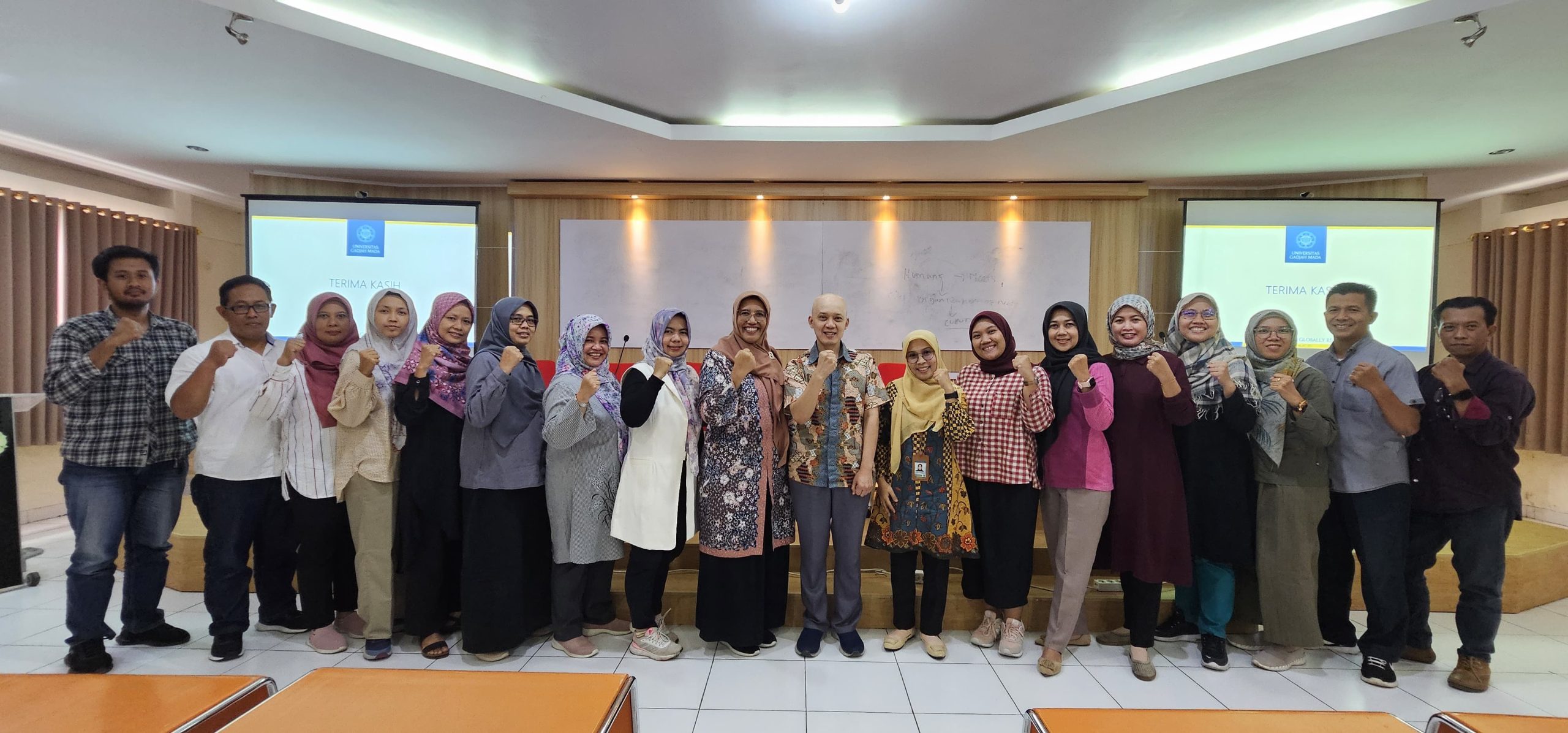 This event received cooperation and assistance from Mr./Mrs. UGM HPU Team. Head of HPU UGM, Prof. Dra. Yayi Suryo Prabandari, M.Sc., PhD, had the opportunity to directly accompany the training participants as a speaker regarding examination activities in posbindu and health check practices (measuring blood pressure and taking blood samples to check cholesterol, sugar and uric acid levels). He received a direct invitation from the Deputy Dean for Finance, Assets and Human Resources, namely Mr. Suray Agung Nugroho, M.A., Ph.D. The Posbindu cadre training was attended by staff from the Faculty of Cultural Sciences, Gadjah Mada University. The targets of Posbindu services are all staff, both lecturers and teaching staff in the faculty environment.
This event received cooperation and assistance from Mr./Mrs. UGM HPU Team. Head of HPU UGM, Prof. Dra. Yayi Suryo Prabandari, M.Sc., PhD, had the opportunity to directly accompany the training participants as a speaker regarding examination activities in posbindu and health check practices (measuring blood pressure and taking blood samples to check cholesterol, sugar and uric acid levels). He received a direct invitation from the Deputy Dean for Finance, Assets and Human Resources, namely Mr. Suray Agung Nugroho, M.A., Ph.D. The Posbindu cadre training was attended by staff from the Faculty of Cultural Sciences, Gadjah Mada University. The targets of Posbindu services are all staff, both lecturers and teaching staff in the faculty environment.